The last scare was his wife. After being shot up with eight rounds at close range in Iraq, Navy SEAL Jason Redman survived but was disfigured. He had tubes going in and out of his body. What would be the reaction of his wife of just six years?
“There are stories of spouses showing up at Walter Reed (National Military Medical Center), walking into the room of severely wounded warrior and saying, ‘Nope. I didn’t sign up for this,’” Jason says on a Real Ones video.“ They take their rings off, leave them on the table and walk out.
“I was really terrified of how she was going to handle it.”
Jason Redman grew up in a Christian family, but he wandered as he grew up. He became a Navy SEAL, the toughest and elitist soldiers on the planet, and battled terrorists in Iraq. He was living the dream embodied by his nickname “Rambo Red.”
But the killer soldier feared by terrorists got shot up.
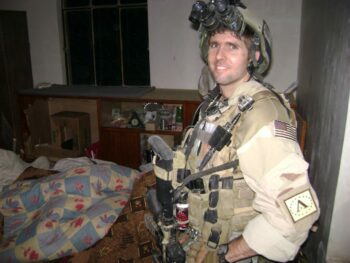 First, he almost was stripped of his trident, the Navy SEAL pin and badge of supreme honor.
First, he almost was stripped of his trident, the Navy SEAL pin and badge of supreme honor.
As a standout Navy SEAL he earned promotions, but became cocky.
“I started to get a little bit of ego,” he acknowledges. “I started to think I was the man of danger, that I was better than other people.”
Now he recognizes that he became too prideful to listen. At the time, he was in Afghanistan fighting the Taliban.
As the war evolved, Jason was falling behind on his tactics and strategies. The new guys actually had more up-to-date knowledge about how to deal with the enemy.
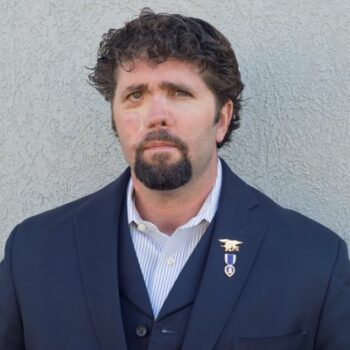 “A lot of the older tactics I had learned weren’t the same as the ones our guys were running with now,” he says.
“A lot of the older tactics I had learned weren’t the same as the ones our guys were running with now,” he says.
But Jason was too proud to ask for help from rookies. “I was insecure,” he says. “I was unwilling to say to the young guys, ‘Hey man, I don’t know how to do that. Can you help me?’”
To douse his insecurities, he turned to the bottle between battles. Jason became a hard drinker.
When a bunch of American soldiers came under Taliban ambush in an Afghan valley, Jason responded rashly. He descended into the valley to help them, even though air support was on its way.
It was gutsy to attempt with only his machine-gunner to cover for him.
It was not-well-thought-out. “I made a bad call,” he admits.
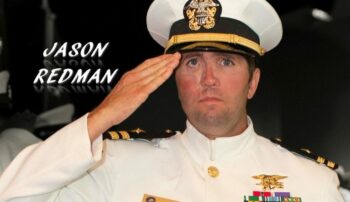 By descending from the opposite direction, air support could no longer bomb the enemy positions for fear of killing Jason also. Instead of single-handedly liberating his buddies, he single-handedly threw a wrench into the process of neutralizing the enemy.
By descending from the opposite direction, air support could no longer bomb the enemy positions for fear of killing Jason also. Instead of single-handedly liberating his buddies, he single-handedly threw a wrench into the process of neutralizing the enemy.
For that foolhardy antic, Jason got called in by his commanding officer. He was informed that military personnel were upset. For endangering so many of his fellow soldiers, there were vigorous calls for him to be kicked out of the SEALs.
“Guys wanted my head on a block,” he says.
In that instant, Jason’s dreams died in disgrace. “They were going to take my trident,” he says. “My world was over.”
After the dressing down, Jason went to his room and, blaming everybody else, grabbed his pistol and stuffed the muzzle into his mouth.
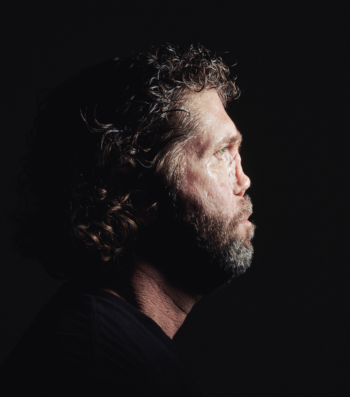 “As I got ready to pull the trigger, I think the Big Man Above kind of punched me in the back of my head,” he remembers. “I looked up, and there was the picture of my wife and kids on the table. My son was six, my middle daughter was three, my youngest was one.”
“As I got ready to pull the trigger, I think the Big Man Above kind of punched me in the back of my head,” he remembers. “I looked up, and there was the picture of my wife and kids on the table. My son was six, my middle daughter was three, my youngest was one.”
What are you doing? God impressed on his heart. What message are you sending them doing this?
Jason set his gun down and went to look for the chaplain.
While God had saved his life, Jason didn’t fully turn to God. He still remained very much a man of the world.
The next day, Jason’s CO didn’t make good on the threat to revoke his trident. Instead, he was sent to Army Ranger school.
The Rangers are the elite of the Army. But Navy SEALs pride themselves on being the elite of the elite.
To submit to Ranger school was, for Jason, a stinging humiliation, “part of my punishment.”
As unsavory as it was, after two-and-a-half years, Jason was a different man, more mature. His credibility restored, Jason returned to the battlefield, this time in Iraq.
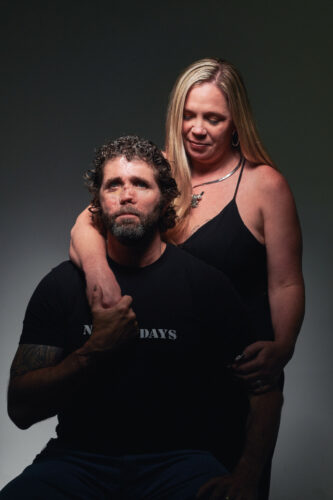 Hunting terrorists and engaging in firefights was again his daily life.
Hunting terrorists and engaging in firefights was again his daily life.
On one mission, he was tasked with leading a team to track down some jihadists hiding in foliage at 3:00 a.m. in Iraq’s Anbar province. Jason, seven SEALs, an interpreter and an explosive ordinance detonation expert crept upon them from the south side through bamboo that snapped loudly with every movement.
“My Spidey sense was going off like crazy. Something didn’t feel right about it. I should have stepped back and consulted with my team,” Jason says. “But you’re in tons of these super dangerous situations, so I just executed based on our tactics.”
Part of the team peeled off to the left in the creep-up. This raised the specter of casualty by friendly fire.
When they emerged from the foliage, the SEALs’ medic stepped on an insurgent whom he didn’t see in the dark, despite having night vision goggles.
The jihadist rolled over and shot him.
“Cease fire!” Jason yelled. There was danger of dying from friendly fire, and he yelled instinctively from his training days.
His yells drew enemy fire. Suddenly, Jason found himself under a barrage of machine guns. Fourteen Islamists trained their weapons on him.
Eight bullets in total struck him in the arm, head, and between the body armor.
The battle became chaotic. Jason thought his arm had been blasted off entirely. The pain felt like hitting one’s funny bone – only 10 times worse.
As he fell to the ground, Jason knew he was in a desperate situation. He was bleeding profusely. As the vessels clamped up as an automatic body response to keep blood in the internal organs, he felt his extremities grow cold and struggled to breathe.
He knew he was dying.
As he lay there, the enemy stopped shooting at him. “They thought I was dead,” he says.
That is when Jason returned to the God of his childhood. He prayed fervently and sincerely.
““I need your strength to go home and see my wife and kids again,” he said.
It seemed like forever for the gunshots to die down. It seemed like forever for the medivac helicopter to arrive.
God answered Jason’s prayer, supplying supernatural strength.
Due to blood loss, there is no way he should have been able to do this, but Jason got up and walked 75 yards to get on the helicopter.
He was evacuated to the hospital where emergency surgery stabilized him.
Doctors marveled that he was alive.
His countenance was disfigured like the face of Jesus in the Passion of the Christ. His body was ripped up by bullets. After multiple surgeries, Jason was finally brought to the place where he could be flown to Walter Reed National Military Medical Center in Bethesda, Maryland.
That’s where Erica, his wife, would see him for the first time since getting wounded.
It scared Jason deeply. They hadn’t been married but six years, and he knew of cases where spouses, faced with the utter loss of their idyllic dream family, simply pulled the plug on their marriage and left the wounded warrior alone.
“I was so afraid. I expected her to come in and be shocked and gasp,” he recounts.
“She locked eyes with me and walked straight up and pushed the tubes out of the way and kissed me on the lips,” he adds.
“We’re gonna be ok, we’re gonna get through this,” she said.
Today, Jason is a motivational speaker. Reconstructive surgery has largely restored his appearance. He can walk and get around. He was awarded the Purple Heart and the Bronze Medal for Valor.
Jason and Erica are still married and their three kids are doing well.
If you want to know more about a personal relationship with God, go here
About this writer: Michael Ashcraft is a financial professional in California.

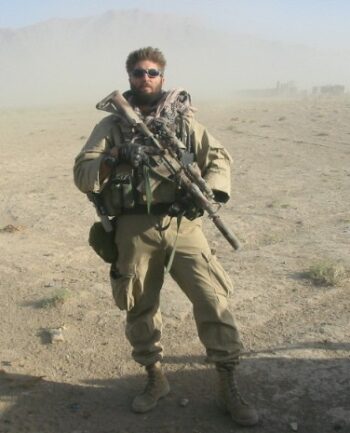



[…] “As I got ready to pull the trigger… Read the rest: Jason Redman escaped death and found God. […]
[…] o site godreports, Jason cresceu em uma família cristã, mas se desviou dessa fé à medida que se tornava adulto. […]
Comments are closed.